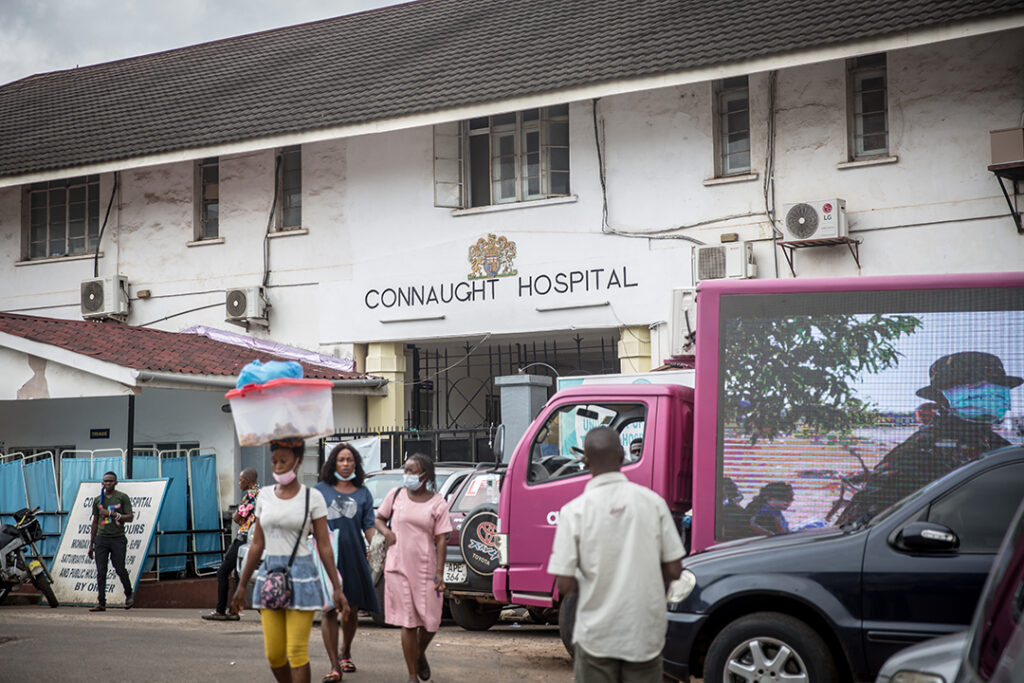ADF STAFF
With a population of nearly 8.3 million, Sierra Leone has recorded only 125 COVID-19 deaths since the pandemic began. As in other countries, experts believe the true coronavirus death toll in Sierra Leone is likely much higher.
In an effort to determine the country’s true COVID-19 mortality numbers, Njala University has begun an electronic verbal autopsy project in which workers go door to door to ask residents if people in their households have died since 2020.
In April, Augustine Alpha was one of four project workers who canvassed homes in the village of Funkoya. The work is sensitive and labor-intensive, but necessary to provide accurate information to health officials.
At one home, Alpha asked a young man if anyone in his home died in the last two years.
“Yes, my mother,” the man said, according to a New York Times report.
Alpha offered his sympathy, then gently asked details surrounding the death of his mother, such as how long she was sick, what her symptoms were, whether she saw a doctor and received medication.
Alpha recorded the man’s answers on a laptop. After Alpha was finished, he placed a sticker on the home to mark it as surveyed, then moved on to the next home.
Data is sent to the project’s head office at Njala University, where it is recorded in a public health survey called the Countrywide Mortality Surveillance for Action (COMSA). At the university, a physician reviews the symptoms to determine a cause of death.
Only a quarter of deaths in Sierra Leone are reported to a national registry system, but none of the deaths are assigned a cause, according to The New York Times. Sierra Leone’s COVID-19 statistics are tracked by the Africa Centers for Disease Control and Prevention (Africa CDC).
Without reliable death data, it is difficult for Sierra Leonean officials to craft health policies — and formulate a health care budget — to protect its residents.
The first COMSA study in 2018 and 2019 found that malaria was the biggest killer of adults in Sierra Leone. Those results ran counter to the belief of health professionals that malaria killed children under 5 and those who survived achieved a level of immunity that prevented the disease from killing them.
The COMSA information gave officials a much clearer picture of the disease’s true death toll and helped them work to better protect the adult population.
Gathering accurate death and cause-of-death statistics is a common challenge on the continent and across the globe. Nearly half of the people who die globally each year do not have their deaths recorded.
“There is no incentive in death registration,” Dr. Prabhat Jha, who heads the Centre for Global Health Research in Toronto, told the newspaper. Jha pioneered efforts such as COSMA two decades ago.
Still, Sierra Leone is working to improve its registration efforts totrack the cause and total number of deaths. Jennifer Ellis, who leads a program called Data for Health, told The New York Times that such information should be available digitally for easier access and better storage.
Other African countries are using unique methods to get a true picture of the pandemic’s toll.
In Zambia, for example, morgue statistics from the capital city, Lusaka, showed that 32% of more than 1,000 corpses in 2020 and 2021 were infected with COVID-19, Nature magazine reported. According to the morgue study, 80% of those tested were never treated at a hospital, and the majority were from the city’s lowest-income neighborhoods.
For every COVID-19 death reported by a Zambian hospital, roughly four people died in their communities, away from facilities that could provide oxygen or intensive care, according to epidemiologist Dr. Lawrence Mwananyanda. As in Sierra Leone, that information can help the country better respond to future disease outbreaks.

